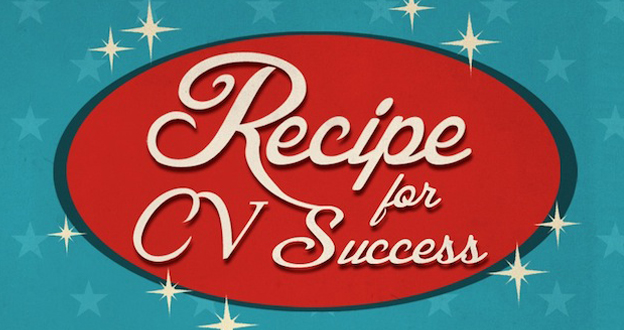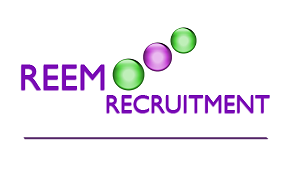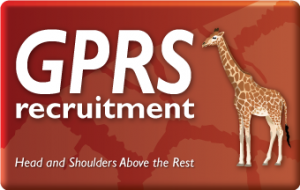
by Lis McGuire | May 12, 2014 | CV tips, Job transition advice, News
The interview went like a dream. So well, in fact, that you wait with excited anticipation, planning your acceptance speech and mentally spending the salary that comes with the role. Although you wouldn’t necessarily want to admit it out loud, you are pretty certain the job is in the bag. You nailed the interview, after all. You have the right experience, the necessary qualifications and you really feel like you connected with the interviewer(s). They even gave you that special secret squirrel look; the one that inferred it was a done deal.
Then you get the call or email you’ve been waiting for. Your heart is racing, pounding in your chest, your anticipation reaches full crescendo and then you hear or read the news – you didn’t get the job. Wait, what? Someone else just pipped you to the post.
The deliverer of your bad news may or may not extend traditional platitudes…
…such a high calibre of candidates….
….really difficult decision…
…so close between the final two…
…when it came down to it, the successful applicant was….
What? Was what? Better qualified, more experienced, more charismatic, more driven, more confident, a closer cultural fit? Whatever the successful applicant had more of, it can make you feel like you are lacking in that department.
The truth is that when someone else takes or is given something that you feel is rightfully yours, it is easy to get bogged down in fruitless comparisons or open the doors on an extended pity party. It really is disappointing and hard to see beyond your feelings right at that moment. Saying that, rejection can be a fantastic learning experience. So what can you take away from the experience when you didn’t get the job?
I thought it would be appropriate to outline a quick-to-adopt six-step action plan for this exact scenario to move you from a state of dejection to a state of empowerment:
1. Seek feedback
Though hiring managers may not wish to be drawn on the exact reasons for their decision, this feedback is gold dust to you as a candidate and you will be richer for knowing, so do ask. You may find the hiring manager is more forthcoming if you ask verbally rather than in writing. If you are using a recruitment agent, they can do it on your behalf – the hiring manager may be less prone to sugarcoat their answers when going through an intermediary. If it was me, I would want to know whether the successful candidate offered something I couldn’t in terms of skills, experience or qualifications – if so, I could then evaluate whether it would be worth my while to try to acquire the missing element for future opportunities.
2. Incubate your already warm contacts
Keep things warm and friendly by sending a thank you note, connecting on LinkedIn and indicating interest in future opportunities. Don’t burn bridges by feeling or acting bitter and sulky; be gracious and ready for any other openings that may arise.
3. Reassess what you have learnt
Life is all an experience and from every situation, good or bad, there will be something you can take away. By going through the application and interview process, you will have gained an insight which you can now draw upon and leverage to your advantage in your job search. This could be in relation to contacts you have made, company or industry insight, interview experience or greater clarity on the kind of roles that will or won’t work out for you.
4. Recognise and build your own resilience
Not getting your dream job can leave you feeling rejected, dejected and frustrated. This is normal but you don’t have to accept those feelings. The ability to pick yourself up, dust yourself off and start again is one of the most valuable skills you can ever learn and, what’s more, you never really stop learning how to do it. Let’s face it, you won’t be the right fit for every role or company, but putting yourself out there is to be admired. Find the reward in every scenario – in this situation, it will be what you learn about yourself and how you use the lesson going forward.
5. Don’t adopt a ‘spray and pray’ approach on the rebound
When you’ve been rejected for your dream job, it can be tempting to ‘show them’ by firing your CV off in response to all and sundry opportunities. One of them should pay off; isn’t it just a numbers game after all? I don’t think so. This approach can waste your time and effort and waste other people’s time and effort. You’d be better to narrow down what it is you really want and focus your energy and attention on that one application, rather than 10, 20 or 30 others that are not so relevant. To quote Claire Mitchell, The Female Entrepreneur Coach: “Where you place your attention is where the magic happens.”
6. Don’t look back in anger
The world is still your oyster – an exciting and more appropriate opportunity may well be just around the corner. Look forward, not back and make sure you are open and ready to embrace it.


by Lis McGuire | Apr 7, 2014 | LinkedIn tips, News
Have you noticed that right at the top of your LinkedIn profile, next to your headshot, there’s a 120-character headline? No? You’re not alone. If you’re like the majority of LinkedIn users, you will have simply let the site populate your headline with the default information of your current job title and employer.
But it’s time to make a change because you could be missing out on one of the most simple and effective ways to stand out on LinkedIn.
The great news is that your LinkedIn headline is quick and easy to change.
Why your LinkedIn headline matters
If you Google yourself (or if anyone else Googles you), the chances are that your LinkedIn profile will be high up in the search engine results. Your headline could make all the difference as to whether someone clicks through to your profile.
When it comes to sales pieces, eight out of ten people read the headline; only two out of ten read the rest of the copy. Your LinkedIn profile is very much a sales piece in that it markets who you are and what your value proposition is to potential employers or customers. Your headline is a one-time only chance to grab attention, spark curiosity, promote your brand statement, communicate your core marketing message and showcase your expertise. And you have just 120 characters to get it right (no pressure!).
If you leave your LinkedIn headline as your job title and current employer, the chances are that you won’t entice anyone to read beyond it to find out more about you.
Crafting a compelling LinkedIn headline
It’s worth spending some time on your LinkedIn headline to get it right, simply because it’s arguably the most powerful part of the page with its sole purpose of acting as a hook to keep people reading.
Think about the following points before you start writing:
Who is your target audience?
What are they most likely to care about?
What is your speciality?
What is your value proposition? In other words, what do you bring to your employers or clients?
What keywords will people use to find you?
How can you show your creativity?
Ask yourself ‘so what?’ about every word you include in your LinkedIn headline. Why does that word or benefit matter to someone who might be looking for your skillset? If you can’t answer ‘so what?’ with a good reason, then that word needs to go.
What LinkedIn headlines make the best impression?
There are some fabulous examples of well-crafted headlines on LinkedIn. Broadly speaking, effective headlines are those that:
Highlight your expert status, e.g. Web copywriter loved by humans & search engines. Page 1 on Google & 500%+ web traffic increase in past 12 months.
Demonstrate your niche, e.g. Speech & Language Therapist| Specialising in aphasia & swallowing in young stroke survivors
Talk straight to the customer, e.g. Need an interview-winning CV? A professional CV writer securing interviews for professionals of all levels
Showcase your creativity or add a dash of humour, e.g. Award-winning children’s book illustrator who creates unique, quirky characters (& completely unbeatable at Pictionary)
So, hands up, is your LinkedIn headline your job title and current employer or have you grabbed the opportunity to stand out from the crowd with both hands? Why not share your headline in the Comments section below?

by Lis McGuire | Apr 1, 2014 | CV tips, News
You don’t have to be the Naked CV Writer or a Domestic CV Goddess to cook up a tasty interview-winning CV, here’s a foolproof recipe to feed one or more talent-hungry recruiters.
We are often asked about the ingredients for our interview-winning CVs and thought this tasty recipe would be an ideal way to share our perfect ingredients and tried-and-tested method for CV success.
Take your ingredients, mix them together and… Voila! You’re ready to serve up a finely balanced and effective CV!

Please feel free to use this infographic on your own website or blog using the embed code below.

by Lis McGuire | Mar 28, 2014 | Career change tips, Cover letter tips, CV tips, Job transition advice, News
This morning I received a little tweet from @GuardianCareers that resulted in a huge smile:

Guardian Careers tweet about Giraffe CVs
Giraffe CVs have been recommended by Guardian Careers as one of their top 10 experts on Twitter to help you get ahead with your career. Having searched for advisors who are ‘leading the careers conversation and who dish out top advice’, Guardian Careers named Giraffe CVs along with nine other careers experts who made the grade. Read the full article here.
We are truly delighted to be featured on the Guardian website. What a fantastic start to the weekend!

by Lis McGuire | Jan 21, 2014 | Interview Advice, News
This week concludes our three-part blog series: smart tips for interview success. Our third and final blog in the series focuses on what you can do AFTER your interview to position yourself for success.
In case you missed parts 1 and 2 in the series, you can link to them here:
Smart tips for interview success: Part 1 – Before the interview
Smart tips for interview success: Part 2 – At the interview
PART 3: AFTER THE INTERVIEW
How and when should candidates follow up after a job interview?
 “Ideally, make sure that you check with the interviewer when they will let you know. This will give you a good indicator of if and when you may need to follow up. 1 – 2 weeks after the interview is usually a good ball park figure. Personally I would prefer an email or letter as the method of correspondence. A phone call can catch an employer off guard or at a bad time, whereas an email or letter can be dealt with at their own convenience.”
“Ideally, make sure that you check with the interviewer when they will let you know. This will give you a good indicator of if and when you may need to follow up. 1 – 2 weeks after the interview is usually a good ball park figure. Personally I would prefer an email or letter as the method of correspondence. A phone call can catch an employer off guard or at a bad time, whereas an email or letter can be dealt with at their own convenience.”
Leo Woodhead, Careers Advisor. Contact via Twitter @thecareersblog
______________________________________________________________________________________
 “The follow up to the interview can vary depending on the format of the organisation. If arranged via an agency, the candidate should phone their contact after the interview confirming the interview has taken place and give honest and professional feedback on how they feel about the job and the interview. The agency will contact the company and have a similar conversation with the interviewer and should then feed this information back to the candidate.
“The follow up to the interview can vary depending on the format of the organisation. If arranged via an agency, the candidate should phone their contact after the interview confirming the interview has taken place and give honest and professional feedback on how they feel about the job and the interview. The agency will contact the company and have a similar conversation with the interviewer and should then feed this information back to the candidate.
Interviews that have taken place following a direct application are dependent on the information the interviewer has given the candidate. If they had said a timeframe for the interview process and getting back to candidates, then this should be respected.
If no time frame has been given, I would suggest around a week, before giving a follow up call to the company.
If a candidate learns they have been unsuccessful in landing the job, it is perfectly acceptable for them to make a follow up call or send an e-mail requesting feedback on their interview.”
Pamela Hopkinson, Jobs in Food Manufacturing. Contact via Twitter @JobsinFoodMfr
Does sending a ‘thank you’ letter give candidates an edge over their competitors?
 “Sending a well worded and friendly ‘thank you’ letter can help to remind an interviewer of who you are. They might even have a closer look at your CV or have a little look over their interview notes again. All this puts you at the forefront of their mind and helps you to stand out from the crowd. If it’s well received it can help to show you’re professional side. Employers need professionals that can help their business run smoothly. Making that extra effort shows that you know how to communicate in a business setting and that can make a real difference when it comes to their final decision!”
“Sending a well worded and friendly ‘thank you’ letter can help to remind an interviewer of who you are. They might even have a closer look at your CV or have a little look over their interview notes again. All this puts you at the forefront of their mind and helps you to stand out from the crowd. If it’s well received it can help to show you’re professional side. Employers need professionals that can help their business run smoothly. Making that extra effort shows that you know how to communicate in a business setting and that can make a real difference when it comes to their final decision!”
Leo Woodhead, Careers Advisor. Contact via Twitter @thecareersblog
Don’t call us, we’ll call you. How long should a candidate leave it before following up after an interview?
 “If you have the interviewer’s email address I think it is always a nice touch to email them after the interview to thank them for their time and to confirm that you are still very interested in the role. Keep your email short but sweet, there is no need to go over every point from the interview. If you haven’t received any feedback within three to four days I would recommend calling to see if there is any further progress with your application.”
“If you have the interviewer’s email address I think it is always a nice touch to email them after the interview to thank them for their time and to confirm that you are still very interested in the role. Keep your email short but sweet, there is no need to go over every point from the interview. If you haven’t received any feedback within three to four days I would recommend calling to see if there is any further progress with your application.”
Vicky Pachner, Director, Reem Recruitment. Contact via Facebook.
What is a reasonable timeframe for a candidate to take to consider a job offer?
 “This is very much dependent on how you came across the vacancy. If this was your dream job; and you worked hard to secure the interview opportunity, it shouldn’t take you very long at all to decide whether you want to take the job or not.
“This is very much dependent on how you came across the vacancy. If this was your dream job; and you worked hard to secure the interview opportunity, it shouldn’t take you very long at all to decide whether you want to take the job or not.
If the role involves wider changes (e.g. a relocation, or extensive travel) to your lifestyle, you may need to have a conversation about it with your family.
However, this information is unlikely to surface for the first time at interview, and very likely to have been talked about in principle at an earlier stage in the process.
Ultimately, you shouldn’t take too long. If you’ve followed our earlier advice about never walking out of the door scratching your head, you should be able to reliably follow your ‘gut’ instinct. Never make the mistake of assuming you’re the only option on the table (you’re NEVER the only option, and you can rest assured they’ll be keeping other candidates warm in the meantime) so give yourself a maximum thinking time of 24 hours before responding with your answer. A night to sleep on it usually brings a huge deal of clarity anyway.”
Tim Burns, Managing Director, GPRS Recruitment. Contact via Twitter @gprsrecruitment
What kind of references should a candidate to be ready to provide?
 “You should be able to provide at least five years of employment references, if you are a graduate, and haven’t been working for that long, then provide personal references. These should be given by tutors or professionals you have a strong association with, not family or friends. It doesn’t matter if your professional references aren’t in the same field as the jobs you may be applying for. They are there to guide prospective employers on your working capabilities including timekeeping, ability to handle pressure and performance.”
“You should be able to provide at least five years of employment references, if you are a graduate, and haven’t been working for that long, then provide personal references. These should be given by tutors or professionals you have a strong association with, not family or friends. It doesn’t matter if your professional references aren’t in the same field as the jobs you may be applying for. They are there to guide prospective employers on your working capabilities including timekeeping, ability to handle pressure and performance.”
GradQuiz Contact via Twitter @GradQuiz













